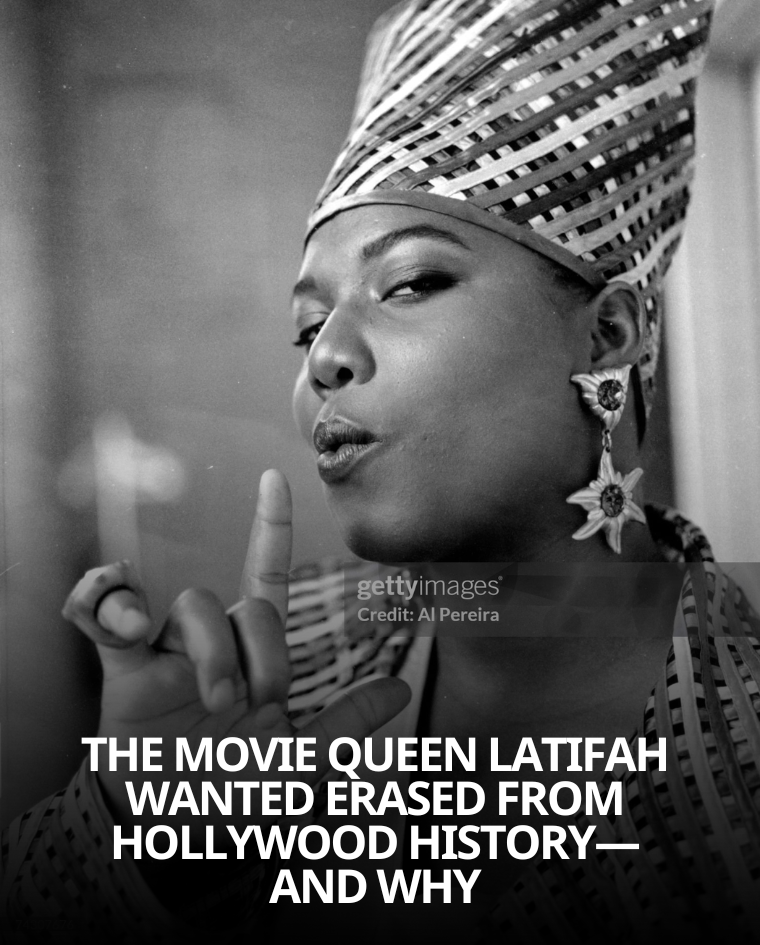OPINION: This article may contain commentary which reflects the author’s opinion.
Queen Latifah, a legendary figure in Hollywood, has never been shy about sharing her opinions on the entertainment industry’s treatment of Black people and the history of racial representation in film. One of the most notable instances of her outspoken advocacy came in 2020, when she voiced strong support for HBO Max’s decision to temporarily remove Gone with the Wind from its streaming library. This classic film, which has long been a staple of American cinema, was flagged for its portrayal of slavery and its deeply problematic racial depictions.
Queen Latifah’s stance on the matter was clear and unapologetic. She famously remarked, “Let Gone with the Wind be gone with the wind,” succinctly summarizing her belief that the film should no longer be celebrated as a timeless masterpiece without acknowledgment of its harmful content. The 1939 epic, while beloved by many for its cinematic achievements, has long been criticized for romanticizing the antebellum South and for its offensive portrayal of African American characters. In this context, Latifah’s support for removing the film was not merely about cancel culture; rather, it was about confronting a troubling legacy and calling for a shift in how the industry portrays Black experiences.
Beyond Gone with the Wind, Latifah’s commentary on racial representation in film extends to her role portraying Hattie McDaniel in the Netflix series Hollywood. McDaniel, the first Black actress to win an Academy Award for her performance in Gone with the Wind, remains a significant yet complicated figure in Hollywood’s history. Latifah’s portrayal of McDaniel allowed her to explore the struggles McDaniel faced in her career, including the systemic racism that restricted Black actors to limited, often demeaning roles.
Despite winning the Oscar for Best Supporting Actress in 1940, McDaniel’s achievement was met with little fanfare in Hollywood at the time. In fact, her Oscar win was overshadowed by the racial segregation that prevailed at the event—McDaniel was seated far from her castmates and was unable to attend the film’s premiere in the South due to Jim Crow laws. For Latifah, McDaniel’s Oscar was a bittersweet victory, one that symbolized both an immense accomplishment and a reminder of the relentless barriers that Black actors faced in Hollywood during the early 20th century.
Latifah’s reflection on McDaniel’s career and legacy sheds light on her broader critique of Hollywood’s history with Black talent. In her eyes, films that perpetuate harmful stereotypes or fail to accurately represent Black experiences need to be examined and questioned. Queen Latifah has long advocated for a more inclusive and respectful portrayal of Black life in cinema—one that moves beyond tropes, stereotypes, and racialized portrayals that have dominated film history for far too long.
Latifah’s career as an actress, producer, and advocate for social change has made her one of the most influential voices in entertainment today. Her critical perspective on films like Gone with the Wind and her portrayal of Hattie McDaniel are just a few examples of her commitment to challenging Hollywood’s racial narratives. For Queen Latifah, the past cannot be erased, but it can certainly be confronted, understood, and used as a catalyst for change in the industry.
In her quest for a more just and equitable Hollywood, Queen Latifah continues to push for a future where Black voices are not only heard but respected, and where the histories of Black artists are celebrated in all their complexity—free from the weight of outdated and harmful stereotypes.
